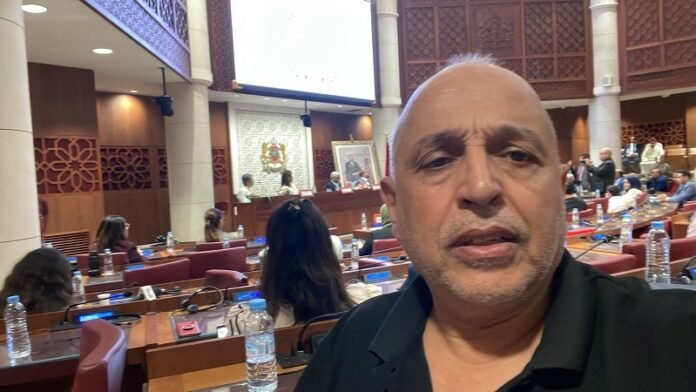When Identity Becomes a Curse: ‘Iḍ n Yennayer’… A Celebration or an Opportunity to Rethink?
Coinciding with Moroccans’ celebration of the Amazigh New Year, Iḍ n Yennayer, symbolizing pride in identity and heritage, individual stories emerge, casting shadows on the profound meaning of such festivities.
Jamal Al-Soussi, a prominent sports activist and journalist, embodies one of these stories, where questions of identity intersect with the struggle for justice and equity.
The Symbolism of Celebration and the Dimensions of Exclusion
Iḍ n Yennayer is not merely a festive occasion; it is a celebration of the cultural and historical depth of Amazigh identity. Yet, the celebration often feels superficial when individuals like Jamal Al-Soussi endure systematic marginalization for reasons tied to their Amazigh roots.
How can the promotion of Amazigh identity be advocated when talents emerging from its roots are actively suppressed?
When Identity Becomes a Curse and Creativity an Accusation
Every tale of injustice carries a silent cry. In the story of journalist and sports activist Jamal Al-Soussi, this cry resounds as a call against systematic marginalization and exclusion.
Jamal Al-Soussi, dedicated to advancing Moroccan sports, has found himself besieged by influential parties and individuals claiming to act on “superior instructions.” Their actions targeted not only him but also the Royal Federation of Brazilian Jiu-Jitsu and Mixed Martial Arts, which he has presided over for years.
A History of Painful Challenges
Since its establishment through a ministerial decision, in full compliance with Law 30/09 on physical education and sports, the federation under Al-Soussi’s leadership has faced numerous obstacles. Despite clear legal compliance, the sports administration dismissed this achievement with dubious contempt, citing vague instructions. How else can this be seen if not as a systematic attack?
“You Won’t Be President as Long as You Are Soussi”
In a stance defying justice and equality, Al-Soussi recalls a shocking statement from a former Minister of Youth and Sports: “As long as I’m alive, you won’t preside over a royal federation as a Soussi.”
These words are not merely an insult to one man but a slap to all who dare to dream in a nation that champions justice and dignity in its slogans.
Can Amazigh identity become an obstacle to personal ambitions? Can a nation punish its own children rather than honor them?
A War Against Sports and Dreams
The assault on Jamal Al-Soussi extended beyond him to the federation he founded to promote jiu-jitsu and mixed martial arts. Instead of supporting this sport to thrive, it has been suffocated by systemic administrative and legal obstacles, despite full adherence to legal requirements.
What message does this marginalization send to Moroccan youth? Can a society progress while crushing the ambitions of its children?
A Call for Reflection and Accountability
Jamal Al-Soussi’s story is not just personal; it is a mirror reflecting a bitter reality faced by many talented Moroccans. It calls on every citizen and official to consider the nation’s future if policies that kill hope and exclude the creative persist.
Will we continue witnessing these tragedies without reacting? Will the voice of justice remain silenced in a country that needs every ounce of its potential?
This is not just Jamal Al-Soussi’s issue but a nation’s quest for dignity, justice, and an unyielding spirit of identity.



